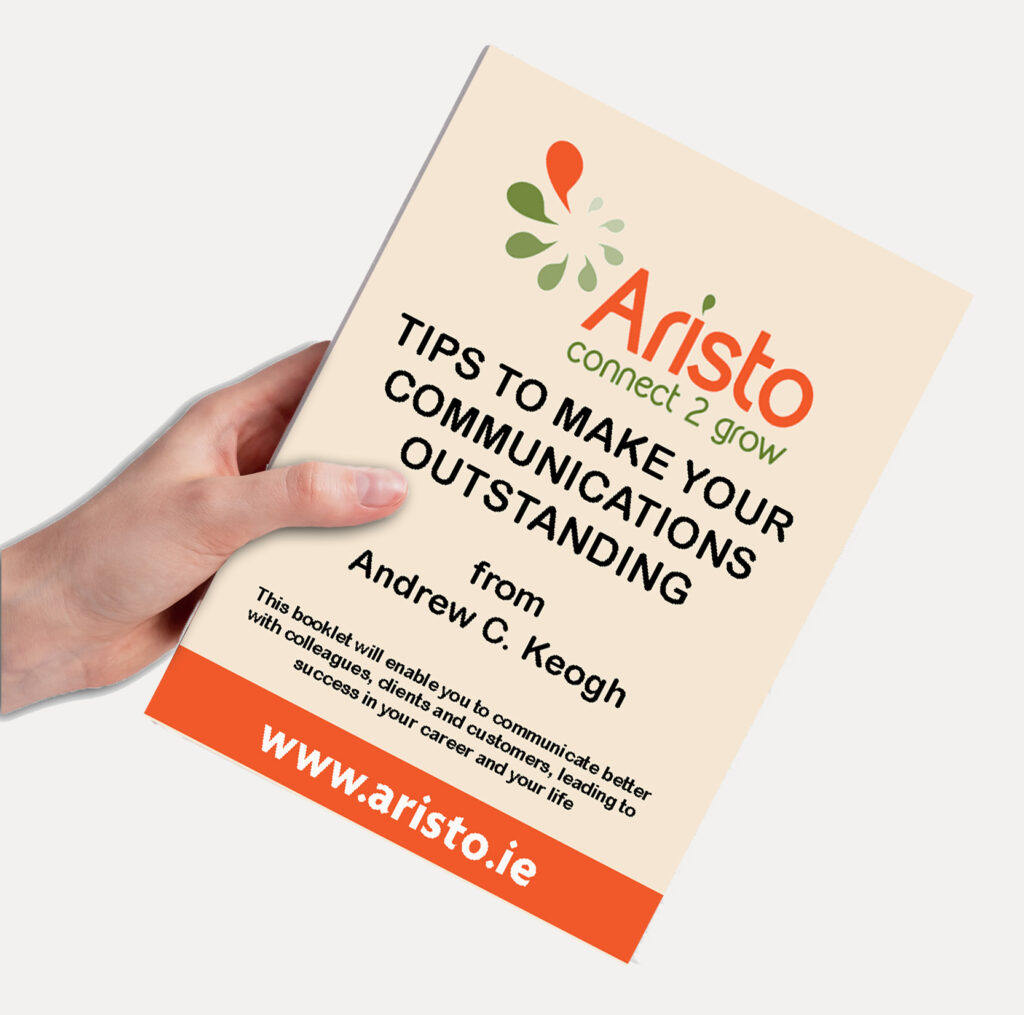
Improve Your Presentation Skills
Having listened to somebody present to you, are you likely to remember everything they said?
No, that’s very unlikely!
What you will remember is how they made you feel – uplifted, informed, enthused, energised, happy, content, inspired!
Would you be happy if your listeners experienced some of these emotions when you were speaking?
I can help you achieve this type of outcome; want to know more?
Firstly, let me tell you what you must stop doing –
pitching, presenting, lecturing, sermonising.
What should you start doing?
Have a conversation with your audience!
Good conversationalists do the following:
They listen!
How can I listen if I’m on stage talking to them, I hear you say?
What would you want to see your audience doing:
looking back at you, making eye contact, smiling, nodding, frowning, laughing – in other words, engaged.
What would you not want them doing:
checking their devices, texting, emailing, writing copious notes, nodding off, in other words not engaged.
“Nobody remembers what you say, they remember how you made them feel –
Joyful, Giddy, Laughed a lot”
Jimmy Carr – Comedian
As a coach how do I do this?
Firstly, I help people realise that they can both speak and think at the the same time, it’s not that difficult, honestly!
What does this allow you to do?
We have all experienced the good speaker that can hold the audience in the palm of their hand.
Bill Clinton, Mary McAleese, Brenda Kennelly, Colm Lyon
(I’m sure you can add your favourites).
The reason they can do this is their ability to be a good conversationalist, capable of making adjustments in the flow of a conversation to accommodate the audience’s reaction.
Testimonial
“Pitched in Montreal yesterday, our best ever, really felt I came across as myself, and mixed it up with humour & anecdote. Really held the room of 20 people”.
Sean Kenzie, Setanta Asset Management
How I get my clients to this stage of readiness is by helping them to create conversational talks, that have a structure that is flexible enough to accommodate small changes of direction, to improve engagement from time to time.
The days of the memorised script are long gone. Actor friends of mine tell me that they no longer learn a script word for word, but read and reread until they are happy that they can interpret the message of the scriptwriter.
To be a good speaker do the following:
Turn up and be the best of yourself you can be (never try to be a poor imitation of someone else); this is best done by showing that you have earned the right to talk on this subject, that you’re eager to share your ideas with the audience, and that you’re excited.
“Be judged not by your words, but by your actions”
If you know someone who would benefit from this article, please share it with them.
Why not avail of my FREE 15 min online chat on this topic or any of my 40+ published articles? Click here to contact me.





